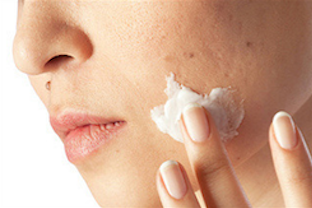
Before your next dermatology appointment, prepare questions you’d like to ask. There’s no need to be shy or self-conscious. Your dermatologist wants to help you and is more than willing to address whatever concerns you may have. Include the following in your list of questions.
Which Products Are Best for My Skin Type?
From one person to the next, skin types can vary drastically. What works well for one person doesn’t necessarily benefit another. Be on the safe side. Ask your dermatologist which products are best for your specific skin type and condition. It’s important to also find out how to correctly apply these products, and how frequently. The wrong ingredients or incorrect techniques could hurt your skin.
What Foods Should I Avoid?
Certain foods can contribute to skin problems, resulting in acne outbreaks, rashes, increased psoriasis or eczema, and other possible issues. On the other hand, the right foods can contribute to clear, healthy skin. During your appointment, discuss which foods are recommended and which to avoid.
Are There Any Abnormalities in My Sun Spots or Moles?
It’s a good idea to have moles, freckles, and sun spots checked by a specialist periodically. Careful monitoring by a trained eye can lead to early detection of developing skin cancer. Early detection results in a better prognosis for many patients.
Which Moisturizer Should I Use?
With so many products on the market, deciding which moisturizer to use can be an overwhelming task. Tap into a dermatologist’s expert knowledge to help you select the product that’s right for you. It’s important that your moisturizer hydrates your skin without harming it.
What Are Heat Rash Symptoms?
Especially during the hot summer months, rashes can develop when sweat glands become blocked. Heat rashes can also develop year-round, especially when wearing improperly ventilated clothes while exercising. Symptoms usually include a collection of tiny pink or red dots spread over an area of the body. If a heat rash doesn’t heal on its own within two or three days, seek the help of a skin specialist. Keeping skin cool and dry on hot days can prevent heat rash.
It is important to ask questions about your skin. If you have any questions or concerns about a possible condition, be sure to contact our office and schedule an appointment.
